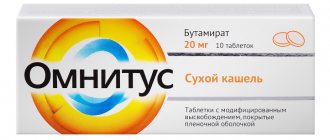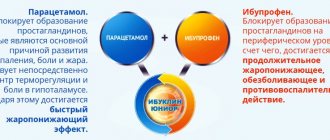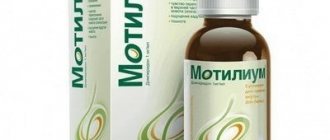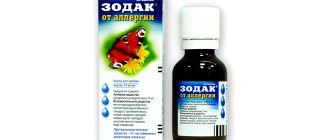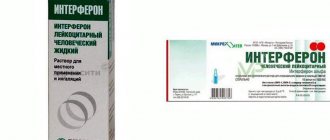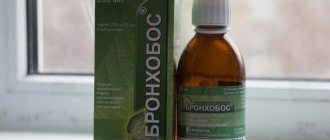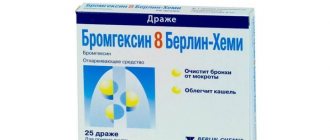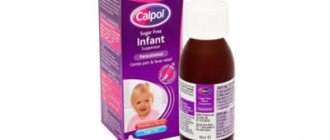Fluditec for children is a mucolytic agent. That is, the medicine is intended to combat cough. The active components of the composition thin out the too viscous secretion that collects in the bronchi, and the sputum leaves the body more quickly. In addition, Fluditec helps eliminate inflammatory processes and strengthens the immune system.
Directions for use and dosage
The dosage depends on the patient’s age, body weight, as well as the individual characteristics of the course of the disease.
Adults over 15 years of age with severe forms of pulmonary obstruction are prescribed 15 ml of syrup (750 mg of active substance) three times a day, at regular intervals. The absorption process from the digestive tract is affected by food, so it is recommended to take the syrup 1 hour before meals or 40 minutes after meals. The syrup tastes good, so it is not recommended to dilute it with water or wash it down. The dosage may be increased if the patient is overweight or the previously used dose does not have a therapeutic effect. Dosage reduction is indicated for individual reasons.
In childhood, the drug is used exclusively after 2 years and a minimum child weight of 12 kg. The maximum daily dose for children 2-5 years old is 200 mg of carbocysteine, divided into two equal doses. Young children are advised to dilute the syrup in a small amount of water, which will make it easier to swallow.
For children over 5 years of age, the maximum daily dosage is 300 mg of the active substance, which is a multiple of 3 doses of the drug, 1 teaspoon every 5-6 hours.
The duration of treatment is 8-10 days. The first noticeable results of treatment appear on days 2-3. If there is no therapeutic effect, adverse reactions develop and the patient’s condition worsens, it is recommended to consult a doctor again to change the course of treatment.
What Fluditec looks like for cough
It is not recommended to take the medicine immediately before bedtime. This will provoke active discharge of sputum, which will be accompanied by a cough, interfering with restful sleep and rest.
You should avoid taking the medicine on an empty stomach in the first hours after waking up. This can cause increased stress on the stomach, which can lead to pain, upset bowel movements and heartburn.
If there is a risk of developing an allergic reaction, the drug is taken together with antihistamines.
Reviews
Quite often, reviews from other people help parents understand how good this drug is, especially if it was given for the same symptoms and similar diseases were treated. Therefore, we have read some reviews about this medicine and want to share with you the impressions of other parents.
Ekaterina shares her experience:
When her 3-year-old daughter fell ill, she developed a high fever and began to have a severe cough. The doctor prescribed therapy, but it had no effect, the unpleasant symptom only worsened. Subsequently, the attending doctor adjusted the treatment and prescribed Fluditec as an expectorant. After just 3 days, the child practically stopped coughing, and no side or allergic reactions were observed. In addition, the syrup is quite aromatic and pleasant to the taste.
And here is another review, from Polina:
Her son had tracheitis and the doctor prescribed this mucolytic drug. And indeed, the effect became noticeable within a couple of days. The baby took it with pleasure, because the medicine is quite tasty.
Tatyana shares her story:
Her son fell ill in the winter and after undergoing therapy prescribed by the doctor, the situation only worsened, the temperature was elevated, and the cough was severe and debilitating. It turned out that the baby had right-sided confluent pneumonia. The treatment was long and inappropriate, nothing helped the child, and then the doctors prescribed Fluditec. And only when they started taking it, the phlegm gradually began to disappear and the wheezing became less. After a course of therapy, pneumonia was no longer detected during a re-examination; the drug really helped clear the airways and get rid of the cough.
Alexandra has two children , and in the winter they fell ill almost simultaneously and began to have a severe cough. After an examination, the doctor recommended this medicine. After a course of treatment that lasted 6 days, the cough really went away, and the children drank the medicine with pleasure.
Marina left another interesting review:
Her baby quite often has a runny nose, and the mucus does not come out, but thickens, collects in the nasal sinuses and then hangs on the back of the throat. This causes a severe cough. The doctor recommended Lazolvan and Sinupret, but no positive effect was observed after treatment with these medications. After the therapy, the doctor advised me to try this drug, but she warned that at the beginning of treatment the symptom may intensify (as indicated in the instructions), because the mucus will begin to liquefy and flow into the throat. This was true, but then the cough went away along with the runny nose, so that this medicine is effective even with a runny nose.
Indications for use for cough
Since the drug belongs to the group of mucolytics, it is advisable to use it exclusively in the presence of cough. Sore throat, swelling of the mucous membrane and other symptoms are not indications for prescribing the drug.
Fluditec is prescribed for the following diseases:
- Acute and chronic bronchitis, which is accompanied by the formation of thick sputum in the bronchi, severe unproductive cough and chest pain.
- Infectious and inflammatory processes in the lungs and bronchi, which cause severe coughing: pneumonia, tracheobronchitis, laryngotracheitis, bronchial asthma.
- Adenoiditis in advanced form, which increases the risk of developing respiratory diseases due to the accumulation of a large amount of pathogenic microflora in the nasopharynx.
- Chronic diseases of the ENT organs that reduce local immunity.
Fluditec is prescribed for pneumonia
The drug can be prescribed before diagnostic procedures to examine the trachea and bronchi (bronchoscopy).
Its high effectiveness has been proven in the treatment of sinusitis, otitis, and pharyngitis, allowing it to liquefy mucus and also quickly remove it from the body.
Side effects
Despite the fact that the instructions for children provide a whole list of undesirable manifestations of the drug “Fluditek”, reviews indicate the opposite. The medicine is most often tolerated quite well by children.
According to the instructions, the following adverse reactions may occur in children while taking the syrup:
- nausea, vomiting;
- weakness;
- epigastric pain;
- itching;
- gastrointestinal bleeding;
- diarrhea;
- flatulence;
- dizziness;
- malaise;
- hives;
- angioedema;
- exanthema.
Sometimes, in addition to the above effects, undesirable effects may occur caused by a combination of syrup with certain medications. It is absolutely not recommended to give your child medications that block the cough reflex at the same time as Fluditec. Such medications include:
- "Stoptussin";
- "Sinecode";
- "Libexin";
- "Codelac";
- "Terpincode."
This combination causes sputum stagnation. The infectious agent multiplies in the body, and the development of the disease continues. In addition, it is accompanied by increased inflammation in the respiratory tract.
These drugs must be alternated
It is very important to take into account the time it takes to completely remove the medication from the body. This is why you should not treat your child yourself
Entrust the health of your baby in the hands of a competent professional - a pediatrician.
special instructions
Patients with diabetes or on a low-carbohydrate diet should take into account that 1 teaspoon of 20 mg/ml syrup for children contains 3.5 g of sucrose, and 1 tablespoon of 50 mg/ml syrup contains 5.25 g of sucrose. Fluditec syrup 50 mg/ml is intended only for adults and children over 15 years of age
Fluditec in the form of syrup 50 mg/ml is intended only for adults and children over 15 years of age.
Impact on the ability to drive vehicles and operate machinery
There is no data on the negative effect of the drug on the ability to drive vehicles and other mechanisms.
Fluditec - contraindications
The product is gentle and suitable for almost everyone. However, it is important to read all the warnings before starting therapy. Fluditec syrup for children should not be used if you are allergic to at least one component of the product. The drug should be used with caution in case of inflammation of the bladder. Fluditec should also be given carefully to children under one year of age. It is not advisable to treat children with syrup who are on a strict low-carbohydrate diet that involves limiting salt.
Side effects of Fluditec
In addition to contraindications, the syrup is characterized by a certain set of side effects, which can manifest themselves not only in case of an overdose of the drug, but also in case of individual intolerance to it by the patient.
The medication itself is on average equally well tolerated by different age groups, regardless of the type of treatment. However, in some cases the following negative effects may occur:
- diarrhea, general stool disorder, vomiting;
- pain in the abdominal area;
- bleeding in the gastrointestinal tract, which manifests itself during bowel movements;
- flatulence against the background of general intoxication with intolerance to the main active ingredient;
- allergic reactions in the form of itching and urticaria, as well as other skin manifestations.
In some cases, in medical practice there have been situations in which the medicine provoked disruption of the nervous system, as well as general malaise.
Helpful information
So that the baby can fully develop, doctors recommend periodically taking a course of vitamin therapy. For babies, B vitamins are very important, necessary for the proper development of the nervous system, as well as Omega-3, which contain essential acids. Even for older children, various multivitamins are recommended, for example Alphabet or another fairly well-known option, namely Pikovit. You can learn in detail about these drugs by reading the suggested articles.
Have you ever used this medicine? What can you say about the drug and what would you recommend to others? Share your impressions in the comments, and also leave your feedback on the information you read.
Analogs
Fluditec syrup has a large number of analogues, which also affect a sick person with acute respiratory diseases, just like this syrup. This applies to the following drugs:
- Bromhexine. This mucolytic agent is low cost. This medication is used for inflammatory processes in the upper respiratory tract. Bromhexine can be taken by adults and children if the child is three years old.
- Ambrosan. This medicine can even be used to treat children who are only a few months old. This drug is available in the form of tablets that should be taken with or after meals.
- Ambrohexal. This drug is recommended for use in acute and chronic diseases of the respiratory system, which are accompanied by the secretion of fairly viscous sputum. It is forbidden to use this medicine with medications that block the occurrence of cough.
- Ambrobene. This expectorant does not contain sucrose. Therefore, it can also be used to treat diabetics. Ambroxol is used as the main active component of the medicine. Children under one year old are allowed to drink Ambrobene in a reduced dosage.
- Fluifort. This product is distinguished by the fact that the level of carbocysteine in it reaches 9%. That is why it should not be given to children of childhood to treat cough. In addition, it is prohibited to use Fluifort for the treatment of women in the first trimester of pregnancy.
- ACC-long. This drug is an effervescent tablet, the main active ingredient of which is acetylcysteine. The medicine is produced in tubes of 10 or 20 units. The tablets should be dissolved in a glass of water and then drunk immediately.
Main analogues
If for any reason you decide not to use the drug Fluditek, it is quite obvious that the question will arise of what to replace it with. It is highly undesirable to make such a decision on your own, without consulting a doctor. An experienced pediatrician will easily select the necessary analogue.
Preparations similar to Fluditec syrup in terms of active substance:
- "Bronchobos";
- "Broncathar";
- "Mukosol";
- "Carbocysteine";
- "Mukopront";
- "Libexin Muco";
- "Mukodin."
If the active component of this medicine is not suitable for the baby, then the doctor will recommend other analogues, which also promote the discharge of sputum and significantly ease the cough.
Instructions for use of Fluditec syrup and dosage
The duration of use of the syrup and its dosage directly depends on the diagnosis and age of the patient. You should not try to self-prescribe treatment with Fluditec, as this can lead to undesirable consequences and side effects.
It is preferable to take the drug on an empty stomach, as a result of which its active component is quickly absorbed by the gastric mucosa and hits the target. If it is not possible to take the medicine on an empty stomach, you must wait at least two hours after eating.
Dosage for adults
For patients aged 15 years and older, a single system of taking syrup is indicated. In therapy for this category of patients, a syrup of 5% of the active component is used. 750 mg of the active ingredient, carbocysteine, is contained in 15 ml of the drug, which is a single dose. Adults take orally at the beginning of treatment - 750 mg 3 times a day, and after achieving a clinical effect, 1.5 g per day in 3-4 doses.
If there are serious ailments for which Fluditek is intended to treat, it is possible to adjust the drug dosage regimen, provided that it is carried out by the attending physician.
Dosage for children
The dosage of a 2% solution of the drug in this case depends directly on the child’s age. In this regard, in pediatrics it is customary to use the following schedule for taking syrup:
At the age of one month to two and a half years, the medicine is taken one teaspoon (50 mg of the drug) twice a day.
- At the age of 2.5 to 5 years, the accepted dosage for a single dose is 2 teaspoons (100 mg of the drug), the number of doses per day should be a multiple of two.
- After the child reaches 5 years of age, the number of doses becomes a multiple of three, 200-250 mg of the drug at a time.
Dosage for pregnant women
It is quite possible for pregnant women to take the drug at a later stage, and the first trimester of gestation automatically prohibits this medication. During this period, it is advisable to completely abandon medications and treat the cough with saline inhalation. In this case, preference is given to the release form used in pediatrics, with a low concentration of the main component.
Side effects
In 90% of cases, the drug is well tolerated by patients and rarely causes adverse reactions. Most often they are associated with the following reasons:
- Individual intolerance to the drug, hypersensitivity to individual components.
- The presence of chronic liver and kidney diseases, which affects the process of absorption and excretion of metabolites from the body.
- Incorrect use of the drug and its combination with other similar medications.
- Exceeding the dosage without the knowledge of the doctor and specific justification.
This can provoke the development of such adverse reactions as:
- Stomach pain, nausea, vomiting, severe dizziness, stool upset, flatulence.
- High risk of bleeding from the gastrointestinal tract.
- Allergic reaction with various symptoms.
Most often, allergies develop in children, which manifests itself in the form of swelling of the mucous membranes, urticaria, and itchy skin.
Anaphylactic shock is possible with a significant increase in dosage, as well as individual intolerance to the drug.
In case of adverse reactions, it is recommended to consult a doctor. If we are talking about acute life-threatening conditions, it is necessary to direct all efforts to resuscitate the patient, while simultaneously calling an ambulance. If gastrointestinal disorders develop, symptomatic treatment is carried out, and the drug is excluded from the treatment regimen.
The drug is not able to influence the speed of psychomotor reactions, therefore, when using it, you can perform work that requires increased concentration.
Analogs
The described drug belongs to the class of mucolytics. This is not an antibiotic, so it can be given to young children. Carbocysteine is the active substance that helps achieve a positive effect. Fluditec or any other drug in this group is used for:
- Activation of the work of epithelial cilia. Thanks to this, it is possible to remove phlegm from the bronchi within a short period of time.
- Mucus begins to be produced in smaller quantities.
As mentioned above, Fluifort is characterized by a similar composition and mechanism of action
on the body. Some pediatricians claim that these products are completely identical. Thanks to this, they can easily replace each other.
If we take into account only the mechanism of action, then it is allowed to use Erespal, ACC, Lazolvan, Kofacin, Ingamist and others. Each of the drugs has proven itself well and is therefore very popular.
Review of the cough medicine Fluditec syrup
How to use
There is no point in using Fluditec syrup together with other mucolytic drugs. This is due to the fact that they weaken the effect of each other, as a result of which the process of treating a sick person takes much longer. In turn, against the background of hormonal and antibacterial treatment, patients can be prescribed Fluditec. Thus, the beneficial effect of the drugs is only enhanced.
Due to the fact that the main active ingredient of the syrup is carbocysteine, you can take this medicine for diseases of the upper respiratory tract without determining their location, form and type of pathogen.
The manufacturer recommends taking the drug in one of the following ways:
- Undiluted. In this case, you should take the medicine with a large volume of water.
- Diluted with water.
It is recommended to take Fluditec immediately after meals. The drug taken in this way helps to calm the mucous membrane of the human respiratory system, which is irritated due to food intake.
How to take Fluditec for children
The medication is intended for internal use. The syrup tastes good, so there should be no problems taking it. Before starting therapy, you must consult with a specialist and discuss all the specifics of taking the medication. This will help avoid many negative reactions and prevent side effects and complications. Fluditec syrup does not require particularly long-term use. The average course of treatment is usually 5 days, but it may vary depending on the complexity of the disease and the patient's condition.
Fluditec - dosage for children
The required effective amount of the drug is selected individually for each child by a specialist. Pediatricians strongly do not recommend prescribing Fluditec cough syrup for children on its own - in this form the medicine can only be taken by children over 15 years of age. In most cases, it is recommended to give the product 2-3 times a day.
The principle of using a medicine such as Fluditec syrup for children varies slightly depending on the age of the patient, but you should always remember that per kilogram of the baby’s weight there should be no more than 30 mg of the medicine:
- Children from one month to 2 years old are prescribed one teaspoon of the product once or twice a day.
- From 2 to 5 years: a teaspoon twice a day.
- A child over 5 years old can be given a teaspoon of the substance three times: morning, afternoon and evening.
Fluditec - before or after meals
It is also very important to take into account the peculiarities of taking the medication during mucolytic therapy. There are no strict conditions as such
Children's Fluditec can be taken both before and after meals. The main thing that parents must remember when treating their child is that the interval between taking the medicine and eating must be at least two hours. Otherwise, treatment may not be effective.
If five days after starting to take Fluditec syrup for a child with a dry cough, the symptoms of the disease do not go away, it is best to consult a specialist. The doctor will replace the medication or adjust the dosage. If cough spasms go away within one to two days after starting therapy, you cannot stop using the medicine. The problem may return, and in a more severe form.
At what age is it allowed to take
The instructions for use indicate that this drug is contraindicated for children under 2 years of age, since the respiratory tract of the baby is quite weak and cannot yet cope with excess phlegm on its own. From 2 to 15 years of age, the use of a product with a concentration of 2% is allowed. A more concentrated drug (5%) and Fluditec in sachets are prescribed exclusively to adolescents over 15 years of age and adults.
Composition and mechanism of action
Cough syrup consists of the main active ingredient carbocisteine and auxiliary components, which mainly include compounds that provide a pleasant smell, appearance and other beneficial organoleptic qualities (sucrose, flavor identical to natural, etc.). In addition, the product contains lysine salt, which helps to achieve an immediate effect by activating the absorption processes of the substance in the gastrointestinal tract.
Find out how to treat laryngitis, dysarthria, tracheitis, stomatitis, colic, enterovirus infection, sore throat, laryngotracheitis, whooping cough in children
The main mechanism of action of this medication is that the syrup has a powerful effect on specific goblet cells, which are located in the bronchial mucosa. This action is aimed at blocking the activity of cells, as a result of which there is a decrease in the amount of mucus they produce, while the processes of releasing excess fluid from the respiratory tract are activated.
Fluditec also regulates the effect of the sialyltransferase enzyme on the body, which makes it possible to normalize the amount of acidic and neutral components of the bronchial mucous glands. This helps to instantly liquefy the mucus in them. A decrease in the activity of inflammatory processes is achieved due to the activation of sialomucins and the improvement of local blood circulation. In addition, the main active ingredient of the drug helps to increase the concentration of immunoglobulin type A in the body, which increases local immunity.
Did you know? The lungs play a protective role for the human heart. It lies in the fact that, due to its structure, this organ, like a kind of airbag, is able to mitigate the negative impact on the heart of a blow to the chest area.
Fluditek - composition
There are two main types of syrup on sale today. Fluditec for children 2% and 5%. The latter is light green with a brownish tint and has a caramel flavor. The 2 percent medicine tastes orange and banana. The products are designed for children, which is why they look great and taste very pleasant. Fluditec syrup contains one main active ingredient - carbocisteine. Among the auxiliary components of the medicine:
- glycerol;
- sucrose;
- methyllarahydroxybenzoate;
- sodium hydroxide;
- purified water;
- banana or caramel flavoring.
What are the contraindications to the use of Fluditec?
Despite its versatility, medicine for any type of cough, just like every medicine, has certain contraindications.
This means that there are some special conditions related to the patient's health under which Fluditec is prohibited for use or can only be used under the close supervision of a physician. The main contraindications of the drug include:
- Gastric ulcer, duodenal ulcer. Especially in the acute stage.
- In the presence of cystitis, this drug can provoke another attack of genitourinary disease.
- In pediatrics, there are contraindications based on age: 5% syrup is prohibited under 15 years of age, and a medicine with a concentration of 2% cannot be used to treat a child under one month.
- If glomerulonephritis is present, especially its chronic form in the acute phase.
- Individual intolerance or sensitivity to the main active ingredient and excipients.
- The first trimester of pregnancy is also prohibited from using this product.
In some cases, Fluditec is prescribed in subsequent periods of gestation and even during lactation, but this requires medical supervision.
Is Fluditec allowed during pregnancy and lactation?
At the initial stage - in the first trimester, therapy with a mucolytic agent is contraindicated. Carbocysteine can cause disruption of the blood supply to embryonic tissues and cause termination of pregnancy.
In the second and third trimesters, the drug can be approved in the absence of critical problems with the mother’s health and the successful development of the fetus.
Nursing mothers can use Fluditec if the child does not have a tendency to be allergic to its components. Carbocisteine passes into breast milk.
Compound
Fluditec cough syrup is used to eliminate various variants of the disease. The composition was specially developed for the treatment of small children. Carbocisteine is the main active ingredient. However, to obtain the optimal formula, it was also necessary to use the following components:
- water and sucrose;
- glycerin-based alcohol;
- Banana flavoring and coloring are used to improve taste;
- sodium hydroxide and other components.
Indications for use: cough, irritated mucous membrane or nasopharynx. The disease can lead to inflammation in the trachea, bronchi and lungs. After use, sputum begins to drain naturally from them. The process is carried out by increasing its elasticity. Since the accumulation from the lungs is removed, the likelihood of inflammation is noticeably reduced. Pathogenic bacteria do not have time to grow and multiply.
antibacterial effect
Microbes are no longer retained inside, but are easily removed outside. The banana flavor is guaranteed to please every child. Children like syrup, so some are willing to take more than the required dose of the medicine.
Fluditec for the symptoms of dry and wet cough is prescribed quite often in medical practice. Parents leave only positive reviews about him.
The active substance penetrates the blood within a few minutes. Thanks to this, it is possible to see the positive effect after a couple of hours. Carbocisteine allows you to quickly eliminate symptoms. Young patients feel much better even after the first dose.
Operating principle
In the bronchial mucosa there are so-called goblet cells, with which it interacts mainly: the main component, carbocisteine, actively affects sialic transferase. This is the enzyme that is responsible for the production of goblet cell mucus. As a result of this effect, bronchial secretions are normalized, its viscosity is restored, fluidity is restored, and sputum is separated much more easily.
Fluditec also restores the structure of the mucous membrane and ciliated epithelium. Carbocysteine actively affects local immunity, restoring mucus components, and promotes specific protection of the body, activating the production of immunoglobulin A in the body. When the substance enters the body, this happens after about 2-3 hours, its maximum concentration is reached in the blood and Fluditec penetrates the bronchial tissue , where it remains in the mucous membrane for about 8 hours. The medicine is excreted in the urine.
Indications for use
Fluditec helps against negative symptoms if there is a disease in the respiratory tract. Moreover, in a small patient, the manifestation can be aggravated due to strong discharge. Inflammation is observed in the case of asthma, the active development of dangerous bacteria in the ear or nasopharynx. For what disease should this syrup be used:
- asthma of a bronchial nature;
- laryngitis, bronchitis or tracheitis;
- inflammation of a separate part of the lung;
- adenoids, rhinitis, sinusitis;
- otitis media of the middle ear.
Instructions for use for children contain information that this drug helps prepare for hardware examination of the bronchi
. The procedure is necessary to clarify or make the correct diagnosis.
The drug helps children get rid of cough, high fever, difficulty breathing, runny nose or severe pain in the ear.
The medicine best helps against dry cough, which is accompanied by a ringing sound during an attack. In this case, a small patient may completely lack other symptoms. The attack begins spontaneously and also quickly and unexpectedly ends. The baby may additionally complain that something in his throat is bothering him.
Overdose
If you consume a large amount, the following symptoms are possible:
- abdominal pain;
- the appearance of nausea;
- the appearance of loose stools.
As indicated in the instructions for use, treatment of these manifestations should be symptomatic.
Fluditek for children
Carbocysteine, which is the active component of Fluditec syrup, acts on the mucous surface of the respiratory organs, helping to soften children's cough.
Due to this, sputum is liquefied and mucus is physiologically evacuated from the body. The medication has an antibacterial and anti-inflammatory effect, helping to eliminate pathogenic cells. 150 minutes after taking cough syrup, the maximum concentration of carbocisteine in the blood is reached. “Fluditec” acts for eight hours, after which it is excreted from the child’s body in urine.
Fluditec syrup intended for adults is not recommended for use in children under 15 years of age. Errors in dosing the medication in most cases lead to the development of side effects in the form of:
- nausea, vomiting, diarrhea;
- bloating and abdominal pain;
- dizziness, allergic reaction.
Dizziness is a side effect of Fluditec.
The simultaneous use of syrup with medications aimed at suppressing the cough reflex can worsen the child’s condition. In such a situation, liquefied sputum will not be able to leave the bronchial area due to the lack of cough, which often leads to blockage of the bronchi and bronchospasms.
The drug, when used simultaneously with glucocorticosteroids, enhances the effect of the latter. Therapy with antimicrobial agents in combination with Fluditec syrup has a more pronounced antibacterial effect, since carbocisteine increases the effectiveness of the active substances included in the antibiotics. The bronchodilator effect of Theophylline increases several times in the case of drug support with Fluditec syrup.
Which is better: Lazolvan or Fluditek
Lazolvan has the same effect as Fdyuditek: it helps to introduce sputum, enhances the activity of the ciliated epithelium, and increases the rheological properties of mucus. However, Lazolvan cannot be called an analogue of Fluditec only due to the similarity of the mechanism of action, because the main substance of Lazolvan is ambroxol, and not carbocysteine. Otherwise, the syrup compositions differ little: they contain both sweeteners and flavorings.
You should choose between two drugs based on two main factors:
- possible allergic reactions to syrup components;
- price of the drug in each pharmacy.
If treatment with Fluditec leads to skin rashes or itching, it should be replaced with Lazolvan, which does not contain substances to which the body reacts after absorption of Fluditec.
Indications for use
This cough syrup is primarily indicated for the treatment of acute and chronic forms of colds, which are characterized by copious production of bronchial sputum. These primarily include: tracheitis, bronchitis, laryngitis, tracheobronchitis, pneumonia, bronchial asthma, etc.
Fluditek is also actively used for the treatment of pathological conditions of the respiratory system, in which processes of abundant secretion of mucous masses are observed. This is mainly inflammation of the nasopharynx or middle ear, rhinitis, otitis, sinusitis of various types, etc.
This drug has also found its use in laboratory and instrumental methods for monitoring the state of the body. For these purposes, Fluditec syrup is used for bronchoscopy and bronchography. In the first case, the components of the syrup help remove excess moisture from the respiratory tract before inserting a special device into it - an endoscope. In the second, they participate in the processes of introducing and removing from the body a special radiopaque compound, which helps obtain a contrast image.
The following drugs are also effective for coughs: “Breast collection No. 1”, “Lazolvan”, “Licorice root”, “Doctor MOM”, “Erespal”, “ACC”, “Ambrobene”
Indications
According to the instructions for use, this drug is indicated in the following situations:
- tracheitis and bronchitis, which occur in acute or chronic forms;
- pneumonia;
- bronchial asthma;
- adenoids, sinusitis, otitis, laryngitis and other diseases of the ENT organs;
- when preparing the respiratory tract for diagnosis (bronchography, bronchoscopy).
Its widespread use is due to the fact that it thins mucus and facilitates its removal from the respiratory tract.
Drug interactions
When prescribing the drug Fluditec to a child, the pediatrician takes into account the possibility of interaction of its active component with substances of other drugs and suppression or enhancement of their effect. According to the instructions, the syrup has the following properties:
- When conducting antibacterial therapy for inflammatory diseases, carbocysteine increases the effectiveness of glucocorticosteroid drugs and antibiotics.
- The active component enhances the bronchodilator effect of theophylline.
- The effectiveness of carbocisteine is weakened by antitussive drugs.
What is Fluditek
The medicine contains the active compound carbocisteine, which has a pronounced bronchodilator effect. The pharmaceutical industry produces several forms for patients of different ages:
- syrup for adults: sweetish green liquid with a caramel flavor, packaged in 125 ml glass bottles;
- children's syrup: sweet orange liquid with banana flavor, 125 ml bottles;
- solution: syrupy, viscous, brown in color, with the smell of caramel, packaged in plastic portioned bags of 10 ml.

